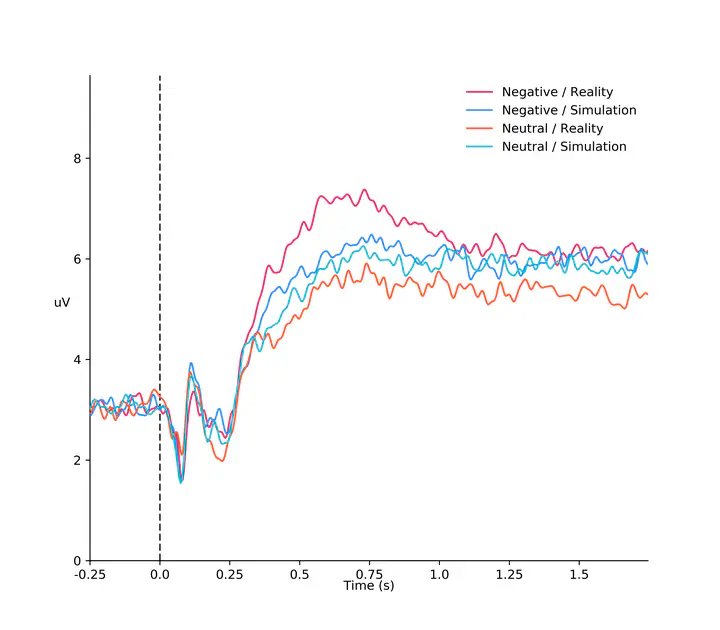Phenomenal, bodily and brain correlates of fictional reappraisal as an implicit emotion regulation strategy

Abstract
The ability to modulate our emotional experience, depending on our current goal and context, is of critical importance for adaptive behavior. This ability encompasses various emotion regulation strategies, such as fictional reappraisal, at stake whenever one engages in fictional works (e.g., movies, books, video games, virtual environments). Neuroscientific studies investigating the distinction between the processing of real and fictional entities have reported the involvement of brain structures related to self-relevance and emotion regulation, suggesting a threefold interaction between the appraisal of reality, aspects of the Self, and emotions. The main aim of this study is to investigate the effect of implicit fictional reappraisal on different components of emotion, as well as on the modulatory role of autobiographical and conceptual self-relevance. While recording electrodermal, cardiac, and brain activity (EEG), we presented negative and neutral pictures to 33 participants, describing them as either real or fictional. After each stimulus, the participants reported their subjective emotional experience, self-relevance of the stimuli, as well as their agreement with their description. Using the Bayesian mixed-modeling framework, we showed that stimuli presented as fictional, compared with real, were subjectively appraised as less intense and less negative, and elicited lower skin conductance response, stronger heart-rate deceleration, and lower late positive potential amplitudes. Finally, these phenomenal and physiological changes did, to a moderate extent, rely on variations of specific aspects of self-relevance. Implications for the neuroscientific study of implicit emotion regulation are discussed.